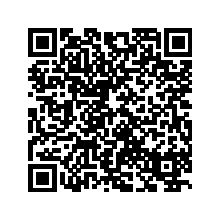Discovery at Carlson·15 How coworkers influence your behavior

Le (Betty) Zhou: How coworkers influence your behavior
If you’ve spent any time in the work world, chances are good you know someone like this: a person who’s always the first to sign up for a corporate volunteer event. Or who enthusiastically encourages coworkers to sign up for the annual blood drive. Or maybe even the person who prominently displays a poster (or two) promoting a social cause in their cubicle.
These are all examples of outward projections of an individual’s morality, or what’s often termed “moral identity symbolism.” And if you find yourself acting a bit differently around these people, Carlson School Assistant Professor Betty Zhou says you’re probably not imagining it. Individuals who exhibit such characteristics—moral identity symbolizers—can have a profound effect on the people they work with.
Peer-to-peer influence
Zhou’s work on the topic focused on several questions. “First, we wanted to understand how people change the way they act in response to the presence of moral identity symbolizers in the workplace,” she says. “And if people do alter their behavior, under what conditions does it happen? Finally, what are the implications of these types of relationships?”
One key finding of Zhou’s research: Moral identity symbolizers tend to make their coworkers act in ways that could be perceived as virtuous. What’s more, those effects occur between peers—relationships where people are on the same level at work. “Thanks to a symbolizer’s influence, you might be more willing to help out one of your coworkers on a project,” Zhou explains. “You also might be more willing to participate in volunteer events that the symbolizer is involved with.”
A judgment-perceived zone
On one hand, that might seem like the symbolizer is simply serving as a powerful source for good. But Zhou’s research uncovered a more nuanced picture. “People also tend to feel judged by moral identity symbolizers,” she says, adding that the person on the receiving end often feels as if their own morality is under question. “That helps drive the positive actions they exhibit.”
But perhaps not surprisingly, it can also lead to an undercurrent of tension in coworker relationships. Few of us enjoy the sense of being judged in the workplace, particularly if that judgment originates from a sanctimonious peer. And if the symbolizer starts to get a little too vocal or aggressive, the behavior can quickly cause their peers to tune out the person. “We found that when a symbolizer starts to proselytize—saying, for example, ‘You need to believe what I believe and do exactly what I’m doing’—it tends to trigger reactive behavior. The people on the receiving end may want to do good deeds, but they also want to maintain their sense of autonomy and be their own person.”
Companies should tread lightly.
Zhou says her findings have implications for companies. “Organizations that are trying to establish themselves as moral role models might consider taking a subtle approach,” she says. “One example would be a company that demands its employees to do ‘mandatory’ volunteer projects. If the employees feel like the projects are actually designed to generate positive public relations and build the corporate brand, they could feel extremely put upon and react in a negative fashion.”

同侪道德表现会影响你的行为
如果你曾历经职场,那么你肯定认识这样的人:每逢企业志愿者活动,他第一个报名;积极鼓励同时献血;甚至在自己的格子间贴上一张或多张社会公益活动宣传海报。
这些都是个人道德对外投射的例子,也被称为“道德认同性象征主义”。卡尔森学院副教授Betty Zhou表示,如果你觉得和这些人相处时,自己的行为会有所不同,那很可能不是假想。这类人被称为道德象征者,他们对同事的影响十分深远。
同侪影响
Zhou在研究中着重关注下列问题:“首先我们想知道,在面对职场中的道德象征者时,人们的行为是否会发生改变。如果却有改变,是在什么条件下发生的?这类关系给我们带来何种启示?”
她在研究中得出了一项重要发现:道德象征着能够使同事的行为趋于高尚。并且,这种影响发生在同侪之间,即,职场层级相同的人。“受到这些象征者的影响,你可能更愿意帮助同事完成项目,更愿意加入象征者参加的志愿者活动。”
价值评判
道德象征者仿佛单纯地代表着善良,但Zhou通过研究发现了一些微妙之处。“人们会觉得受到了他们的道德审判。”她进一步表示,被审判的一方会因此质疑自己的道德水平,“这能驱使他们去表现出正面的行为”。
当然,这也会造成同事关系的潜在紧张,这可能并不令人惊讶。大家都不喜欢在职场中遭受价值评判,尤其是被伪善的同侪评判。如果道德象征者表现得较为直白或富于攻击性,同事们会迅速忽视他们。“我们发现,一旦道德象征者开始‘传教’,就会导致负面反应。例如,对同事们说‘你要相信我所相信的理念,做我所做的事情’。接收信息的一方想要做好事,但他们也想维持自主感、维护自己的身份。”
企业应谨慎行事
Zhou表示,她的研究对企业有所启示。“如果企业希望将自身打造成道德模范,他们的措施应当更加巧妙。例如,要求员工‘自愿’参与志愿者项目。如果员工认为项目的实际目的是正面公关、维护企业品牌形象,就会感觉遭到了欺骗利用,并作出负面反应。”



